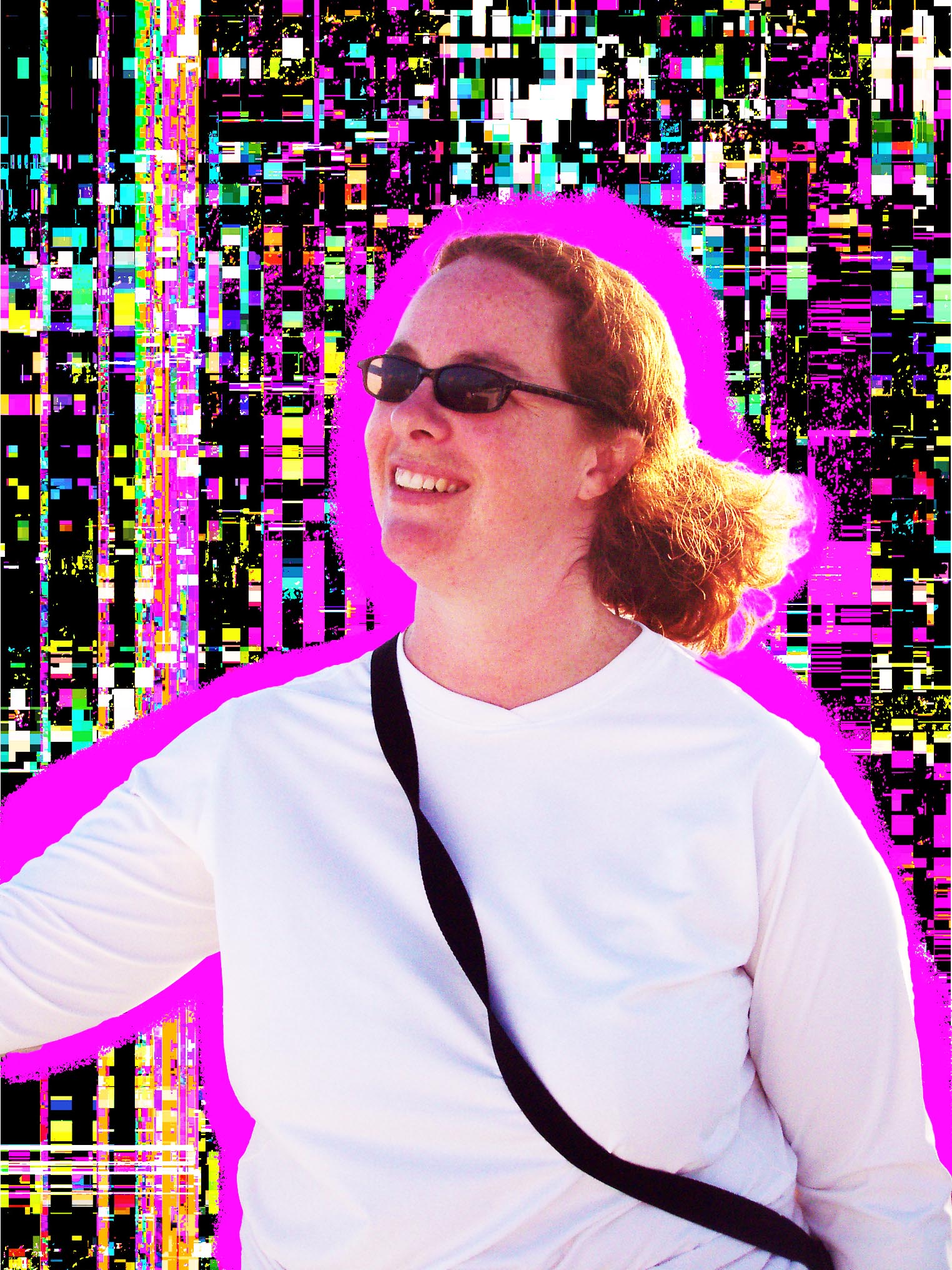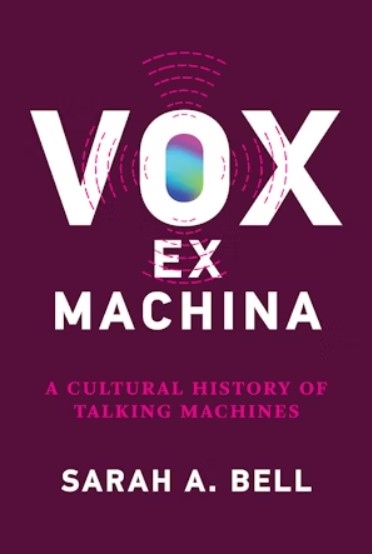Sarah A. Bell
I am an interdisciplinary scholar, writer, teacher, and currently an Associate Professor at Michigan Technological University in the Department of Humanities. I investigate digital technologies that are designed to simulate our expressions of human embodiment–our voices, our emotions, the visual identities we present to the world–especially the ways these technologies mediate age, gender, dis/ability, health, and race. My work often asks questions about how real people get measured and quantified in order to develop these technologies, and what is at stake when those abstractions are then turned around and used to define us.
I earned a PhD in Communication from the University of Utah, an MLIS from the University of Washington iSchool, and an MA in English from Boise State, my hometown public university.

research & writing
My first book, Vox ex Machina: A Cultural History of Talking Machines, is now available from the MIT Press. I have published articles in Information & Culture, Popular Music & Society, Computational Culture, and other journals. My research has been funded by fellowships from the John W. Kluge Center at the Library of Congress, the Lemelson Center at the Smithsonian National Museum of American History, the Brian Sutton-Smith Library and Archives at the Strong Museum of Play, Michigan Technological University’s Research Excellence Fund, the Computer History section of the Association for Computing Machinery, and the Institute for Museum and Library Services.
Google Scholar profile
How today’s digital devices got their voices, and how we learned to listen to them.
From early robots to toys like the iconic Speak & Spell to Apple’s Siri, Vox ex Machina tells the fascinating story of how scientists and engineers developed voices for machines during the twentieth century. Sarah Bell chronicles the development of voice synthesis from buzzy electrical current and circuitry in analog components to the robotic sounds of early digital signal processing to today’s human sounding applications. Along the way, Bell also shows how the public responded to these technologies and asks whether talking machines are even good for us.
HEAR THE VOICE SYNTHESIZers
The New Yorker listed Vox ex Machina as one of the Best Books We Read This Week on October 2, 2024, saying, “Bell’s début is a terrific account of how researchers gave machines voices.”

“Vox ex Machina traces the scientific, social, and cultural dynamics that shape synthesized voices as consumer products. Bell’s engaging narrative raises vital social, economic, and political questions about our interactions with artificial voice technologies.”
Meredith Bak
author of Playful Visions
“Authoritative and thoughtful, Bell’s Vox ex Machina centers electronic voice synthesis as consequential technology. A history that ‘speaks’ to the deeper motivations and repercussions of language simulation in the computer age.”
Andrew Meade McGee
Curator of Computing, Smithsonian Institution, National Air and Space Museum
“A thought-provoking history at the intersection of technology and popular culture.”
Joseph Turow
author of The Voice Catchers

TEACHING
I have had the privilege of working with students for more than 20 years. Teaching, like learning, is interesting, joyful, frustrating, exhilarating, creative, intimidating, heartbreaking, heart-mending, and worth it. It requires at least as much listening as it does talking. I find that keeping a bowl of fresh fruit and an electric teakettle in my office can entice students to give me much to listen to.
I currently teach courses in expository writing and information design; the rhetoric of science; media history; sound and culture; and the history of information and computation. I introduce concepts, case studies, and critiques that highlight in/justice into every course I teach.